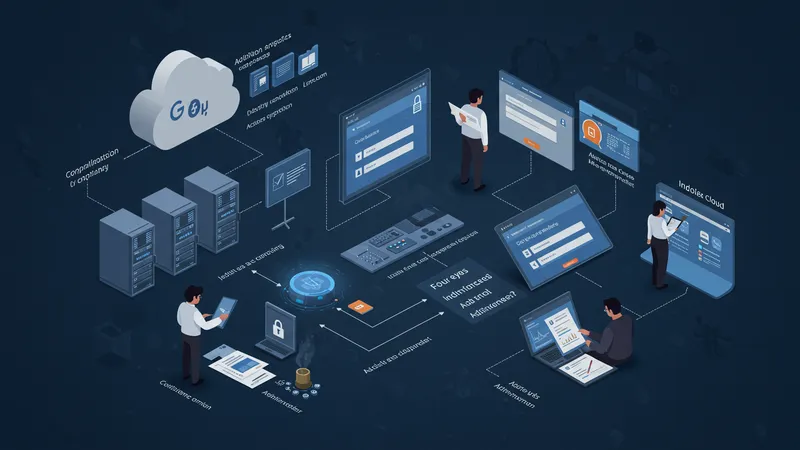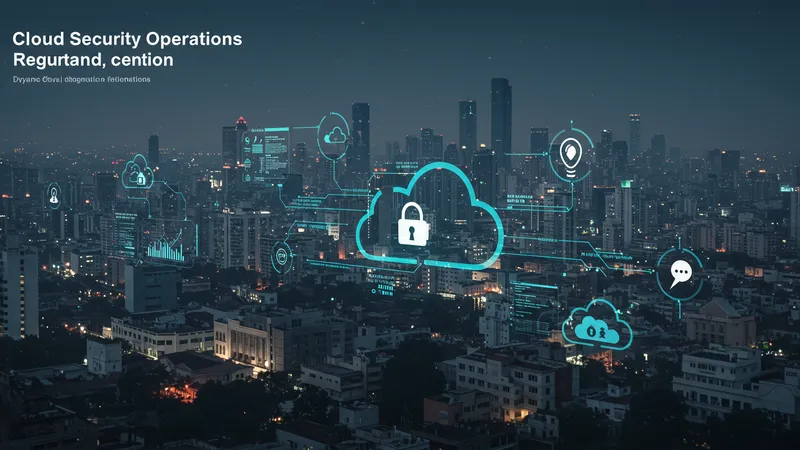

Cloud security governance involves putting robust policies, controls, and technologies in place to manage data protection and regulatory compliance in cloud environments. When it comes to Google Cloud Platform (GCP), enhancing these governance strategies means making the most of GCP's native tools, integrating automation, and ensuring that security practices are adapted to specific regulatory landscapes, such as India’s data privacy regulations.
Organizations leveraging Google Cloud often face complex challenges: multi-cloud operations, evolving threats, and strict compliance requirements. Strengthening governance in this context requires a nuanced approach—balancing scalability with oversight, automation with human-centric controls, and innovation with proven risk-management frameworks.

Google Cloud Security Command Center acts as a security and risk platform, providing visibility into assets and vulnerabilities across GCP environments. In the Indian context, it’s instrumental for organizations that need centralized risk assessment to comply with evolving personal data protection requirements.
Identity and Access Management (IAM) is at the heart of governance, controlling who can take what action on specific resources. GCP’s IAM offers fine-grained control, supporting Indian businesses in satisfying local regulatory standards by enforcing least-privilege access and robust auditing.
Google Cloud Armor introduces powerful, policy-driven protection at the edge, defending applications from DDoS and web exploits. For Indian enterprises hosting consumer-facing apps, this means greater assurance that customer data is shielded against sophisticated attacks, while maintaining performance.
India's recent push towards stricter data localization and privacy regulations, like the Data Protection Bill, amplifies the importance of adapting cloud security governance. The combination of these Google Cloud tools with policies tailored for India's regulatory environment creates a proactive security posture, better audit readiness, and greater trust among stakeholders.
Summing up, Google Cloud offers a dynamic foundation for advanced cloud security governance, especially for Indian organizations. But deploying these solutions in alignment with regulatory expectations, business needs, and evolving threats is a nuanced journey. The deeper details reveal even more valuable insights ahead—let’s explore how these strategies can be tailored for actual business outcomes and industry scenarios in India.
Integrating governance policies with Google Cloud Platform is critical for Indian organizations aiming for compliance and risk mitigation. Effective policy frameworks should reflect both global best practices and unique Indian regulatory mandates, such as localization of sensitive data and sectoral norms for industries like finance and healthcare.

Many enterprises in India adopt hybrid approaches, combining Google Cloud’s native controls with open-source frameworks such as CIS benchmarks. This dual strategy ensures that organizations remain agile, yet fully compliant with domestic audit standards, thus simplifying approval and reporting processes.
To maximize oversight, companies often automate policy enforcement through GCP’s resource manager and organization policy service. These tools allow for granular guardrails, such as restricting resource creation to approved regions or enforcing specific encryption standards—which is critical for organizations handling citizen data under Indian jurisdiction.
Another powerful tactic is leveraging GCP’s Security Command Center as a central dashboard for continuous compliance monitoring. This approach provides real-time alerts on misconfigurations or anomalies, making it easier for Indian IT teams to respond proactively and demonstrate ongoing due diligence during regulatory inspections.
Securing access in the cloud is about far more than simply setting passwords. For Indian organizations using Google Cloud, Identity and Access Management (IAM) enables administrators to adhere to regulatory frameworks, including mandatory role segregation and frequent audit trails as imposed by Indian authorities.

Google Cloud’s IAM supports fine-tuned control over resources, down to individual permissions, ensuring compliance with RBI and sector-specific guidelines. Indian banks, for example, can enforce “four-eyes” principles, requiring two administrators to approve sensitive changes, thus reducing the risk of insider threats.
Multi-factor authentication (MFA), recommended in the Indian Digital Personal Data Protection Bill, is easily implemented through GCP IAM, adding another layer of assurance for remote and mobile workforce scenarios common in India’s digital transformation landscape.
Logging and monitoring access events through Cloud Audit Logs simplifies forensic analysis and reporting. This is particularly beneficial for regulated industries in India, as organizations can demonstrate audit readiness and data-governance discipline as required by governing bodies.
Web-facing Indian businesses, especially e-commerce and fintech firms, must safeguard applications from increasingly sophisticated attacks. Google Cloud Armor provides policy-driven, layered defense, enabling real-time inspection and blocking of malicious traffic before it reaches sensitive workloads hosted on GCP.

Custom security policies can be crafted within Cloud Armor to reflect unique application patterns and Indian traffic profiles. For instance, organizations can geo-fence requests to comply with India’s data sovereignty mandates, only allowing domestic internet traffic to critical applications.
In addition to standard DDoS protection, Google Cloud Armor incorporates predefined rules and adaptive risk models, which are critical for Indian firms combating threats during high-transaction events, such as national sales or festival seasons.
Seamless integration with the Security Command Center enables Indian IT teams to centrally monitor threats and apply rapid mitigation. This holistic approach reduces operational complexity and demonstrates to regulators and clients that security is a continuous, adaptive process.
Maintaining strong cloud security governance on Google Cloud is not a one-off effort, especially for organizations operating in India’s dynamic regulatory landscape. Continuous auditing, leveraging real-time alerts from Security Command Center, ensures compliance obligations are consistently met and anomalies are identified before becoming incidents.

Automation tools such as Cloud Functions can be deployed with IAM to auto-remediate misconfigurations detected during routine audits. This proactivity is critical for sectors in India where non-compliance could result in significant penalties or reputational damage.
Indian organizations increasingly use Security Health Analytics within the Security Command Center to benchmark cloud configurations against predefined regulatory templates. These tools provide actionable guidance, streamlining the process of closing the gap between policy intent and operational reality.
The evolution of data protection norms in India means cloud security governance must remain agile. Regularly reviewing governance strategies on Google Cloud, incorporating feedback from audits and regulatory updates, ensures sustained compliance and a resilient security posture for future digital growth.